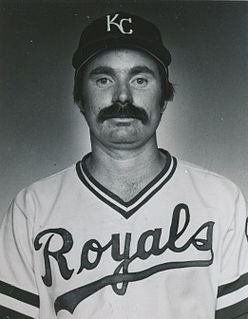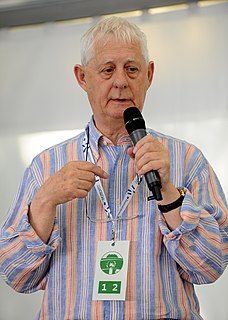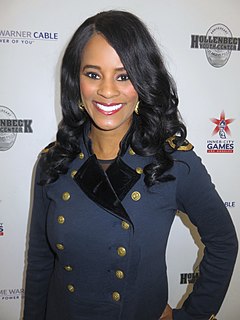A Quote by Dan Quisenberry
Someone told me just recently that poets are eulogists. It's their job, to eulogize. I didn't know that, but it makes sense. Because in almost every poem of mine there is a loss.
Related Quotes
How do I think of you? As someone I want to be with. As someone as young as me, but "older," if that makes sense. As someone I like to look at, not just because you're good to look at, but because just looking at you makes me smile and feel happier. As someone who knows her mind and who I envy for that. As someone who is strong in herself without seeming to need anyone else to help her. As someone who makes me thinks and unsettles me in a way that makes me feel more alive.
It's difficult to put your own bare ass out on the limb every time you sit down to write a poem. But that's really sort of the ideal. Because if we don't discover something about ourselves and our world in the making of a poem, chances are it's not going to be a very good poem. So what I'm saying is that a lot of our best poets could be better poets if they wrote less and risked more in what they do.
I feel like the older I get, the truer it feels that I'm only going have an investment in a poem if it allows or forces me to bring something that's supremely me onto the page. I used to think that the speaker of a poem was talking to someone else, to some ideal reader or listener, but now I think that speakers - poets - are talking to themselves. The poem allows you to pose questions that you have you ask of yourself knowing that they are unanswerable.
I've always been more than a little mystified by poets who seem to think talking to people as directly as possible is a bad thing. I mean, I don't want to set up a straw man here: I understand that for many poets - and for me, at times - writing truly means writing in a way that is difficult, simply because the poem is trying to grasp for something elusive. So the difficulty of the poem is just unavoidable, and not in any way artificially imposed. So "as possible" is the key part of the phrase above, I suppose.
I have a hard time with awards shows in general because I've never been part of the conversation. I just show up to work and do my job because I love the job and I love the people I get to make TV with. When someone wants to applaud it more than just watching it, that makes me somewhat uncomfortable.
I have never received full credit from the SPLA [Sudanese People's Liberation Army], because the men are very sexist and feel that I'm acting out of place, bringing too much attention to myself - but for the funeral of our leader John Garang, they had me write the poem "Chol Apieth" to eulogize him, and that was their way of acknowledging my contributions.






































